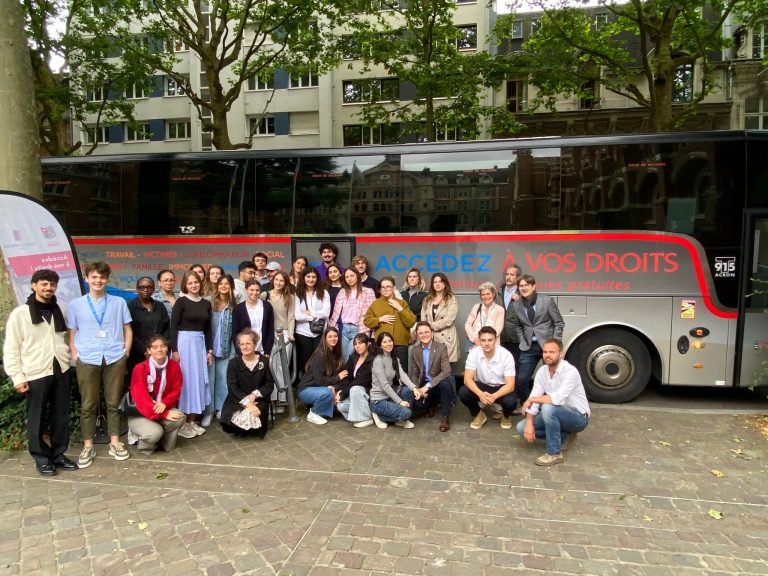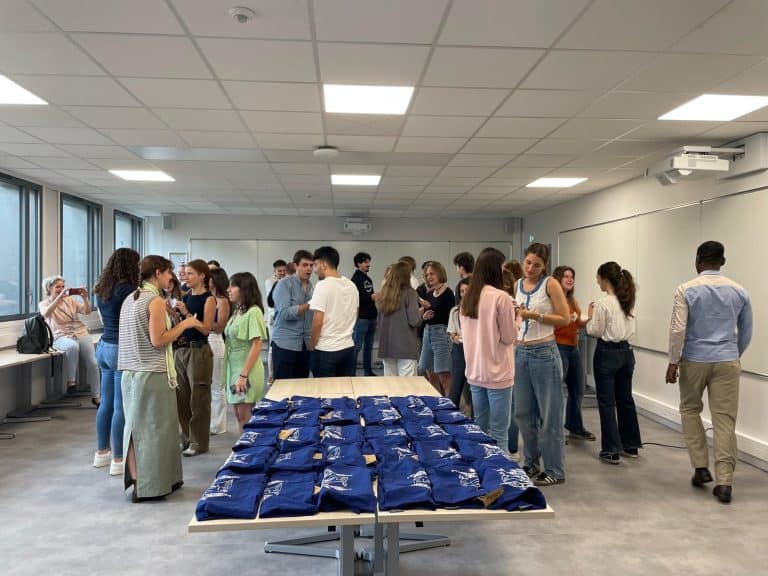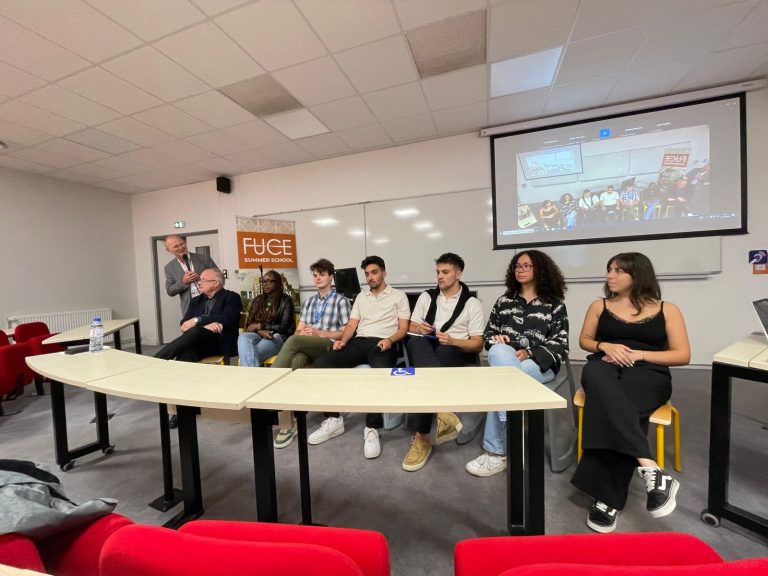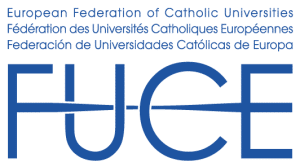

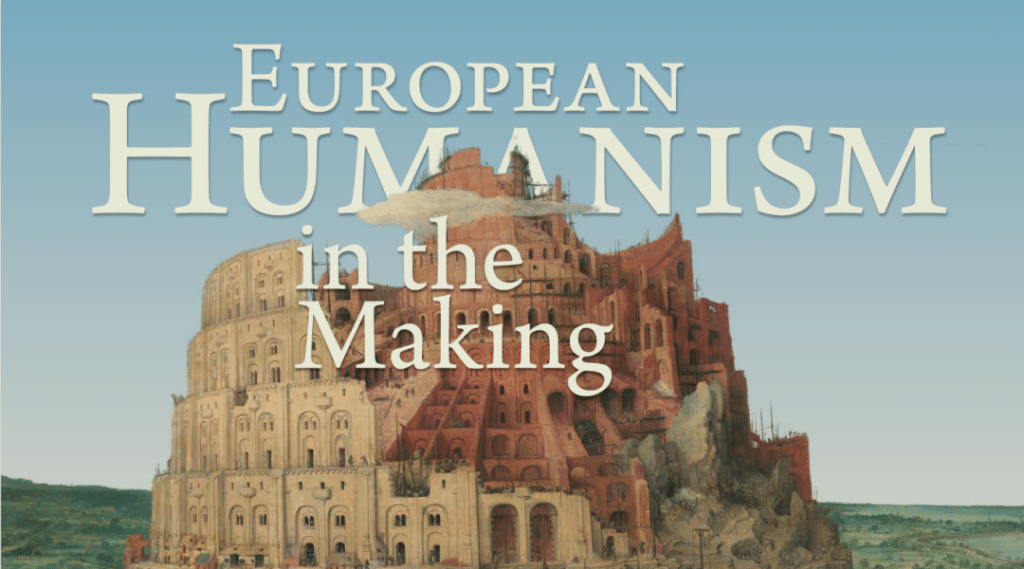
The sixth edition of the summer school ‘European Humanism in the Making’, organized by the European Federation of Catholic Universities (FUCE) and coordinated by the University Centre Saint-Ignatius Antwerp (UCSIA), will take place on the campus of the Université Catholique de Lille (UCLille) from Monday June 30th until Friday, July 4th 2025.
After 5 editions, of which 3 were hosted by the LUMSA University of Rome and 1 was held online (in 2021), the Université Catholique de Lille, has taken over by hosting the 5th edition last year and the next 2.
What is the "European Humanism in the making" Summer School ?
The project
The idea for this project was born from the concern that students’ sense of belonging to Europe is more than diffuse. Euroscepticism and amnesia of the history of European integration and the values that forge European identity requires us to clarify what makes the specificity of the European spirit.
To re-boost Europhilia as an antidote against widespread Europhobia, Europeans have to reconsider anew those structural ingredients and conquests that have been the driving pillars of European life, one such pillar being humanism.
Inspired by the appeal made by Pope Francis, on accepting the Charlemagne Prize in May 2016, for the recovery of a lost – or maybe never fully recognized – ‘soul’ of Europe, based on the agenda for a new humanism resulting from historical knowledge and the ethical recollection that it can foster collectively, the course programme is titled ‘European Humanism in the Making’. In doing so it wants to address his question “What happened to humanist Europe, the defender of human rights, democracy and freedom?” and take it further to tap into historical roots as bearers of future prospects for the European project.
Up until now, 115 (2nd and 3rd year) bachelor students from about 30 member universities participated in this international exchange, reflecting with their peers from Lebanon, the EU and wider Europe, on the cultural, religious and philosophical foundations of the European project as a basis to rethink its future.
Program content
The core focus is on identifying the ‘roots and routes’ of the European project and investigating how to valorize them in the contemporary globalized context. This involves a questioning of historical contexts, cultural canon, scientific approach, institution building and citizenship from a wider comparative and international perspective.
The program consists of following five modules, structured in two parts:
PART I – Historical and Cultural Roots: Implications for Europe Today
I. Contribution of History to European Consciousness
II. Literature, the Arts, Translation and European Identity
III. European Enlightenment and the Islamic Heritage
PART II – Social and Political Construction: Implications for the Future of Europe
IV. European Social Humanism
V. Creative Leadership and Civic Engagement
The FUCE programme ‘European Humanism in the Making’ helps to co-create European humanism through imagination, displacement, deepening, connecting. It deals with complex issues in real life, ambiguity and diversity. It contributes to a broad education with a clear link to society and contemporary reality. It is transformative in aiming for a perspective change through awareness of different frames of reference and a questioning of assumptions, models, values, … It brings awareness of social responsibility and asks for explicit attention for connectedness: “care first and learn from”. The story of the other becomes part of your own story. The programme is a form of civic education that helps students to become critical, caring and responsible (global) citizens. This is achieved through, among other things, insight into structural injustice and inequality, the development of empathy for vulnerable groups in European society and the strengthening of a willingness to solidarity. It prepares for the future and at the same time grounds in the present.
Each year a specific theme is put to the fore and presented in the public opening lecture (that can also be attended online) by an invited keynote speaker. After foregoing topics on conflicting memories between East and West and the future of Europe challenged by migration and Artificial Intelligence challenging European humanism, this year’s focus is on the way populism challenges humanism. It will be introduced by Ioannis Panoussis, Vice-Rector in charge of International Development at the Institut Catholique de Lille, who will address the impact of populism on human rights.
History of the FUCE Summer School
The idea for the development of a teaching programme for university students on the foundational roots and values of the European idea and their relevance for the challenges the European Union faces today, was proposed by the General Assembly of the FUCE in 2015.
The University Centre Saint-Ignatius Antwerp UCSIA, a private organization emanating from the former Jesuit university in Antwerp, was found willing to coordinate the development of the programme.
In a meeting, held in Antwerp in February 2017 with 15 professors from different FUCE member institutes, the content of the programme was designed. A core group of 5 professors subsequently worked in collaborative action under guidance of UCSIA on the concretization, which led to a 5 course 5 day programme for a summer school for bachelor students to be hosted in the historical town of Gubbio, near Assisi and Perugia, by LUMSA university of Rome, on their offsite campus. In July 2018 a first preparatory edition amongst professors (the core group + additional experts from the network) held a trial summer school to test out the programme. As such, a pool of professors was created from which guest lecturers for future editions could be invited.
The outcome was presented to the FUCE General Assembly held in Antwerp in May 2019 and was attended by the rectors of the network who had been invited to propose students from their institutes to participate in the first edition of the summer school to be held in July 2019.
After a first successful edition with an interdisciplinary group of 22 students (law and psychology, theology and philosophy, political and economic sciences, social and cultural sciences, geography and education), from 15 FUCE universities in ten different countries (including Georgia, Ukraine, Slovakia, Poland and Lebanon), the core group of coordinators then proceeded with the preparation of the next edition, which generated the interest of a new group of 27 students and was scheduled to be held in Gubbio in July 2020. The event had to be cancelled due to the health crisis and was reworked into an online format. The second summer school thus took place online on 5-9 July 2021. The third summer school with 25 students was held in Gubbio on 4-8 July 2022. The fourth summer school with 25 students took place at the LUMSA campus of Palermo. The fifth summer school was held at the Université Catholique de Lille with 30 students participating. On the whole we served about 115 students from 30 member institutes.
Organizers
Hosting universities:
- LUMSA (Libera Università degli Studi Maria Ss. Assunta di Roma) for the editions of 2019, 2021 (online), 2022 and 2023
- Université Catholique de Lille (Law Faculty) for the editions of 2024, ’25 and ‘26
Program coordination: UCSIA (University Centre Saint-Ignatius Antwerp)
Core teaching team:
- Sarah Durelle-Marc from the Law Faculty of the Université Catholique de Lille (course I);
- Peter Hanenberg from the Research Center for Communication and Culture at the School of Human Sciences of the Catholic University of Portugal in Lisbon (course II),
- Ali Mostfa from the Center for the Study of Cultures and Religions of the Catholic University of Lyon (course III);
- Michael Shortall of the Faculty of Theology of the Pontifical University St Patricks College Maynooth in Ireland (course IV);
- Fernando Ariza of the Faculty of Humanities of the University CEU San Pablo in Madrid (course V)
